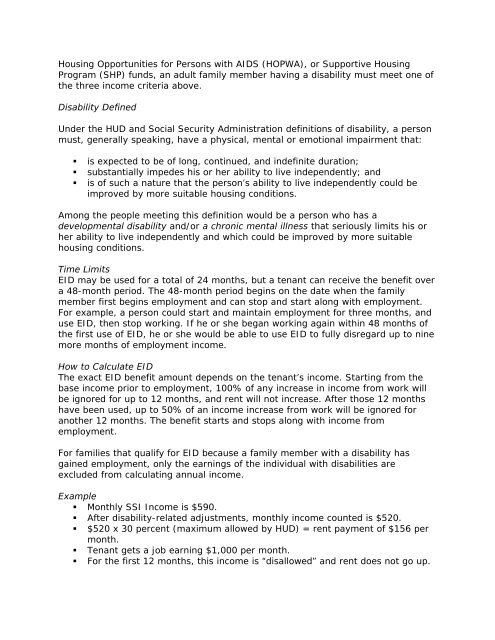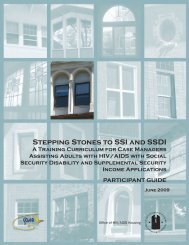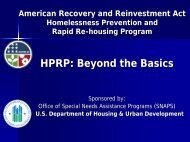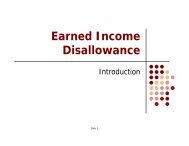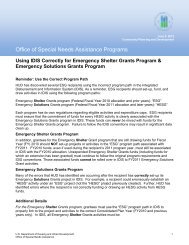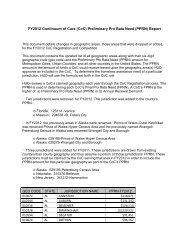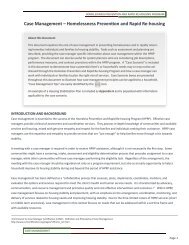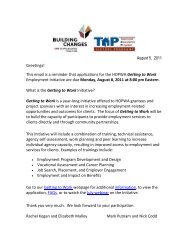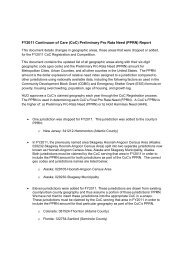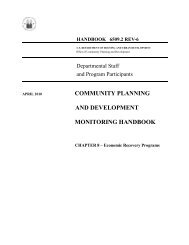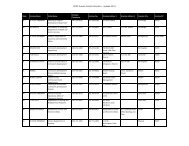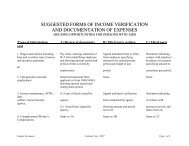EID Brochure Overview - OneCPD
EID Brochure Overview - OneCPD
EID Brochure Overview - OneCPD
Create successful ePaper yourself
Turn your PDF publications into a flip-book with our unique Google optimized e-Paper software.
Housing Opportunities for Persons with AIDS (HOPWA), or Supportive Housing<br />
Program (SHP) funds, an adult family member having a disability must meet one of<br />
the three income criteria above.<br />
Disability Defined<br />
Under the HUD and Social Security Administration definitions of disability, a person<br />
must, generally speaking, have a physical, mental or emotional impairment that:<br />
• is expected to be of long, continued, and indefinite duration;<br />
• substantially impedes his or her ability to live independently; and<br />
• is of such a nature that the person’s ability to live independently could be<br />
improved by more suitable housing conditions.<br />
Among the people meeting this definition would be a person who has a<br />
developmental disability and/or a chronic mental illness that seriously limits his or<br />
her ability to live independently and which could be improved by more suitable<br />
housing conditions.<br />
Time Limits<br />
<strong>EID</strong> may be used for a total of 24 months, but a tenant can receive the benefit over<br />
a 48-month period. The 48-month period begins on the date when the family<br />
member first begins employment and can stop and start along with employment.<br />
For example, a person could start and maintain employment for three months, and<br />
use <strong>EID</strong>, then stop working. If he or she began working again within 48 months of<br />
the first use of <strong>EID</strong>, he or she would be able to use <strong>EID</strong> to fully disregard up to nine<br />
more months of employment income.<br />
How to Calculate <strong>EID</strong><br />
The exact <strong>EID</strong> benefit amount depends on the tenant’s income. Starting from the<br />
base income prior to employment, 100% of any increase in income from work will<br />
be ignored for up to 12 months, and rent will not increase. After those 12 months<br />
have been used, up to 50% of an income increase from work will be ignored for<br />
another 12 months. The benefit starts and stops along with income from<br />
employment.<br />
For families that qualify for <strong>EID</strong> because a family member with a disability has<br />
gained employment, only the earnings of the individual with disabilities are<br />
excluded from calculating annual income.<br />
Example<br />
• Monthly SSI Income is $590.<br />
• After disability-related adjustments, monthly income counted is $520.<br />
• $520 x 30 percent (maximum allowed by HUD) = rent payment of $156 per<br />
month.<br />
• Tenant gets a job earning $1,000 per month.<br />
• For the first 12 months, this income is “disallowed” and rent does not go up.


